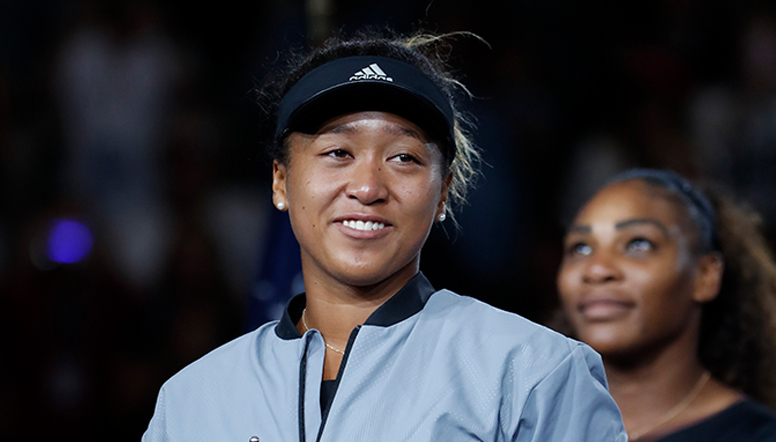By JIM LITKE

Most athletes are comfortable talking about injuries, so long as they can point to a bruise, a bandage, a cast or a spot on an X-ray. Some will even venture an educated guess at how long they might take to heal. Their mental health is a different story.
Or at least it was before Naomi Osaka ended a damaging standoff with top tennis officials by withdrawing from the French Open, citing concerns for her well-being. It marked the first time a major star walked away from a major tournament without a visible injury. “When someone tears an ACL, it’s 6-8 months, we know the time frame. And like with everything else in life, we want a finite number. But that’s not how mental health works,” said Dr. Wendy Borlabi, a Chicago-based performance psychologist who works with pro, Olympic and college athletes.
The leaders of the four Grand Slam tournaments reacted on June 1 to Osaka’s stunning withdrawal by promising to address players’ concerns about mental health.
The pledge came in a statement signed by the same four tennis administrators who threatened the possibility of disqualification or suspension for Osaka if she continued to skip news conferences.
The four-time major champion and No. 2-ranked player was fined $15,000 when she didn’t speak to reporters after her first-round victory at Roland Garros on May 30. The following day, Osaka pulled out of the tournament entirely, saying she experiences “huge waves of anxiety” before meeting with the media and revealing she has “suffered long bouts of depression.”
Osaka, a 23-year-old who was born in Japan and moved with her family to the U.S. at age 3, said she would “take some time away from the court now, but when the time is right I really want to work with the Tour to discuss ways we can make things better for the players, press and fans.”
“On behalf of the Grand Slams, we wish to offer Naomi Osaka our support and assistance in any way possible as she takes time away from the court. She is an exceptional athlete and we look forward to her return as soon as she deems appropriate,” a June 1 statement from those in charge of the French Open, Wimbledon, U.S. Open and Australian Open said. “Mental health is a very challenging issue, which deserves our utmost attention. It is both complex and personal, as what affects one individual does not necessarily affect another. We commend Naomi for sharing in her own words the pressures and anxieties she is feeling and we empathize with the unique pressures tennis players may face.”
Mental-health specialists who work in sports remind the rest of us that the visibility afforded athletes is both a blessing and a curse. There’s precious little privacy, and every doctor’s note seeking time off scrutinized like a tax return. Imagine having a bad day at work and then sitting down in front of a dozen microphones to explain in detail how and why it happened, over and over.
That’s why those same specialists note that by the time an athlete is acting out, the injury has already occurred.
“That’s the challenge with mental health in sports,” said Dr. Ross Flowers, a San Diego based sports psychologist whose client list also includes Olympians and several pro and college teams.
“Athletes get attention precisely because they’re above average, and sometimes it’s easy to forget they’re humans first. They’re supposed to be dominant and not show vulnerability, yet in most cases we don’t learn they’re struggling until it shows up in their behavior,” he added.
“That’s why what Naomi did was brave. She was proactive. She recognized something was holding her back and said, “I want to be at my best and I can’t be that at the moment.’”
Whether Osaka’s example and a growing public awareness about mental health issues encourage athletes facing similar problems to more forcefully speak out, the people running sports would do well to prepare. While most of Osaka’s contemporaries defended the requirement that players engage with the media to help grow the game, no more than a handful actually enjoy the give-and-take dynamic.
And right on time came further proof that media obligations can be damaging to a player’s health. No. 11 seed Petra Kvitova, herself a two-time major champion, announced she, too, had withdrawn from the tournament after falling and twisting her ankle on the way back from—what else?—“my post-match press requirements.”



